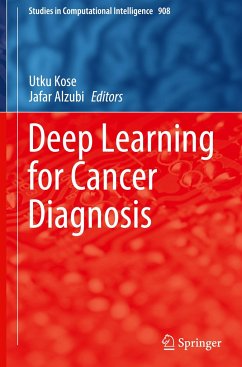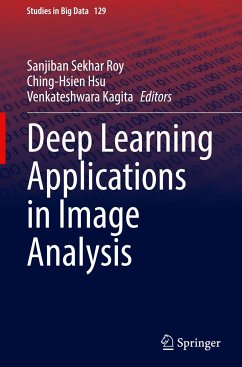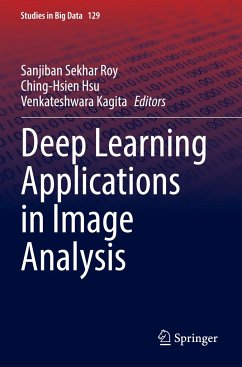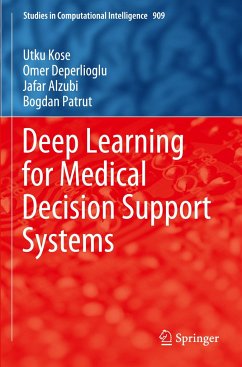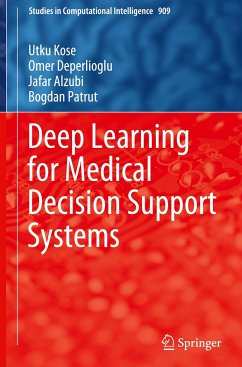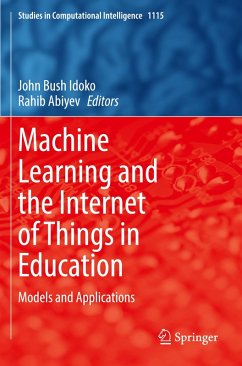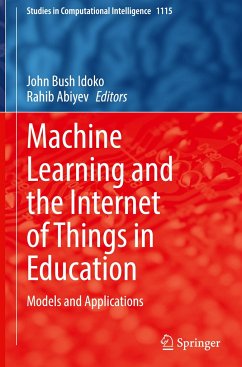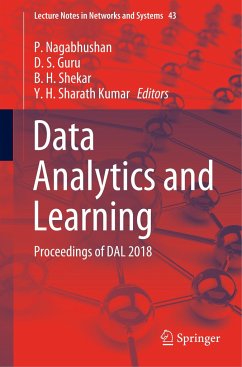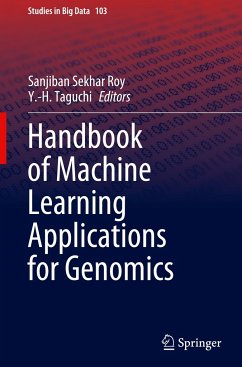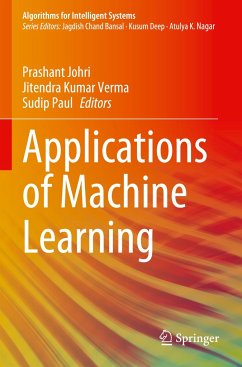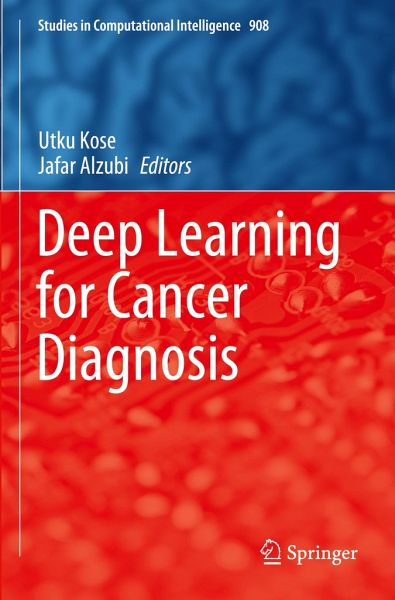
Deep Learning for Cancer Diagnosis
Versandkostenfrei!
Versandfertig in 6-10 Tagen
76,99 €
inkl. MwSt.

PAYBACK Punkte
38 °P sammeln!
This book explores various applications of deep learning to the diagnosis of cancer,while also outlining the future face of deep learning-assisted cancer diagnostics. As is commonly known, artificial intelligence has paved the way for countless new solutions in the field of medicine. In this context, deep learning is a recent and remarkable sub-field, which can effectively cope with huge amounts of data and deliver more accurate results. As a vital research area, medical diagnosis is among those in which deep learning-oriented solutions are often employed.Accordingly, the objective of this boo...
This book explores various applications of deep learning to the diagnosis of cancer,while also outlining the future face of deep learning-assisted cancer diagnostics. As is commonly known, artificial intelligence has paved the way for countless new solutions in the field of medicine. In this context, deep learning is a recent and remarkable sub-field, which can effectively cope with huge amounts of data and deliver more accurate results. As a vital research area, medical diagnosis is among those in which deep learning-oriented solutions are often employed.
Accordingly, the objective of this book is to highlight recent advanced applications of deep learning for diagnosing different types of cancer. The target audience includes scientists, experts, MSc and PhD students, postdocs, and anyone interested in the subjects discussed. The book can be used as a reference work to support courses on artificial intelligence, medical and biomedicaleducation.
Accordingly, the objective of this book is to highlight recent advanced applications of deep learning for diagnosing different types of cancer. The target audience includes scientists, experts, MSc and PhD students, postdocs, and anyone interested in the subjects discussed. The book can be used as a reference work to support courses on artificial intelligence, medical and biomedicaleducation.





